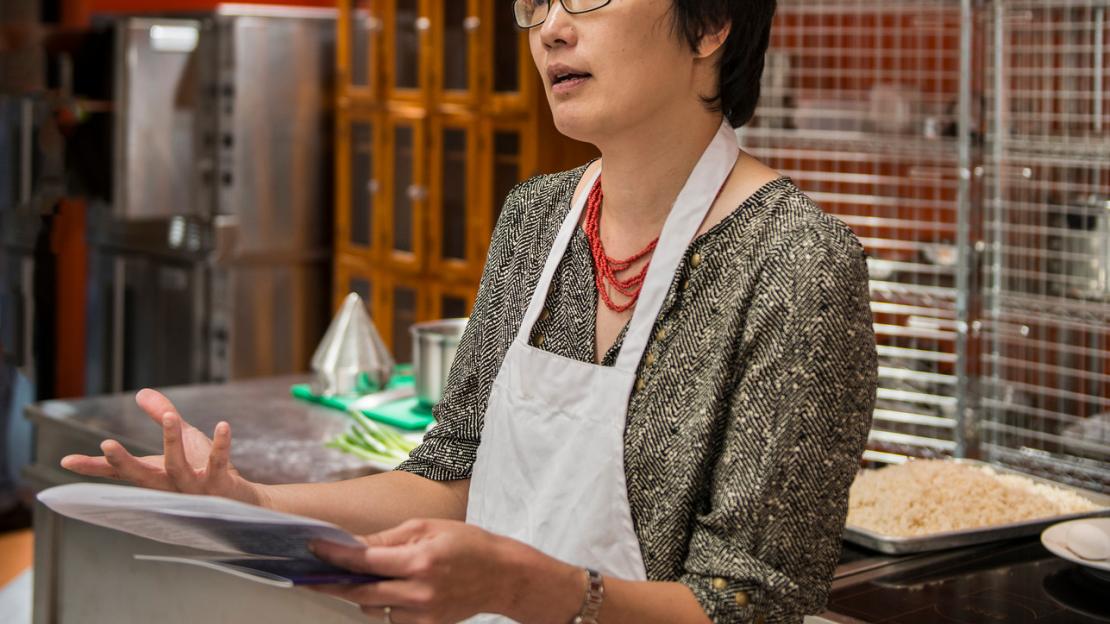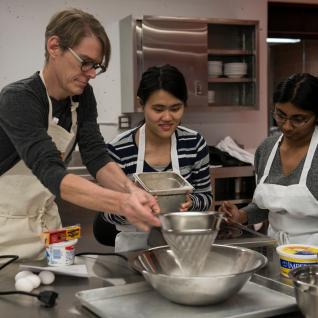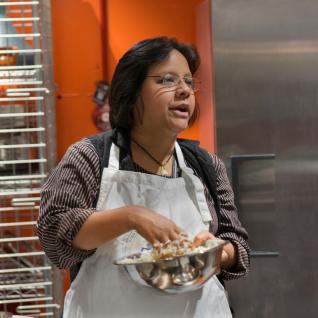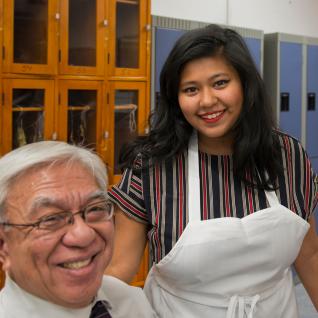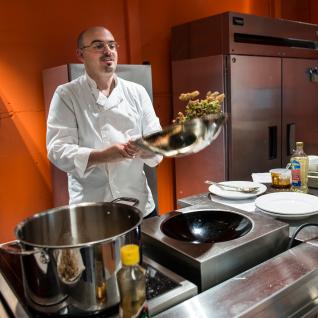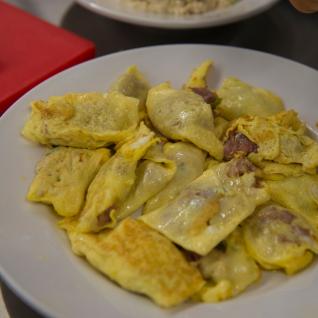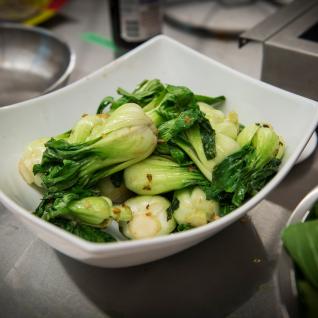In a recent Culinaria Research Centre collaboration, students had the opportunity to examine the global history of Chinese food through cooking and academic discussion.
“This event is part of an ongoing effort to help students think through taste,” says Daniel Bender, Director of the Culinaria Research Centre and Professor of History at the University of Toronto Scarborough.
Following a presentation by guest speaker Michelle King, an associate professor in the Department of History at the University of North Carolina at Chapel Hill, students cooked several dishes based on recipes from their Culinaria classes – three of which were selected by King to represent different aspects of Chinese cooking. This event follows on the heels of another successful event organized by Culinaria that was focused on Chinese food around the world and highlighted the Harley J. Spiller collection, a collection of international menus.
“This event is part of an ongoing effort to help students think through taste,” says Daniel Bender.
The “cook-in,” as described by organizers, also provided an opportunity for undergraduates to connect with graduate students and faculty across the food studies program.
One of the discussion topics focused on cookbooks and how they can inform on culture.
“King explores the question - what is a cookbook?” says Bender. “Is it simply a collection of recipes or is it a way in which people advance a particular idea of what one type of cuisine is as compared to another.”
King, also the editor of the Culinary Nationalism in Asia collection, elaborated on her research of Chinese cookbook history. The following day, the two-day event continued at the East Asian Studies department where King discussed the different ways Chinese food are defined in a lecture titled, “Nation, Regions, Culture, Cuisine: What is Chinese Food?”
“One of the things is that of course, everyone might know what Chinese food is, but when you get down into it, what do you include and not include?” says King.
“Is it all the cuisines that can be eaten and found in China today or is it really more about ethnically Han regional cuisines” – the majority of the ethnic population in China, she adds.
“One of the things is that of course, everyone might know what Chinese food is, but when you get down into it, what do you include and not include?” says King.
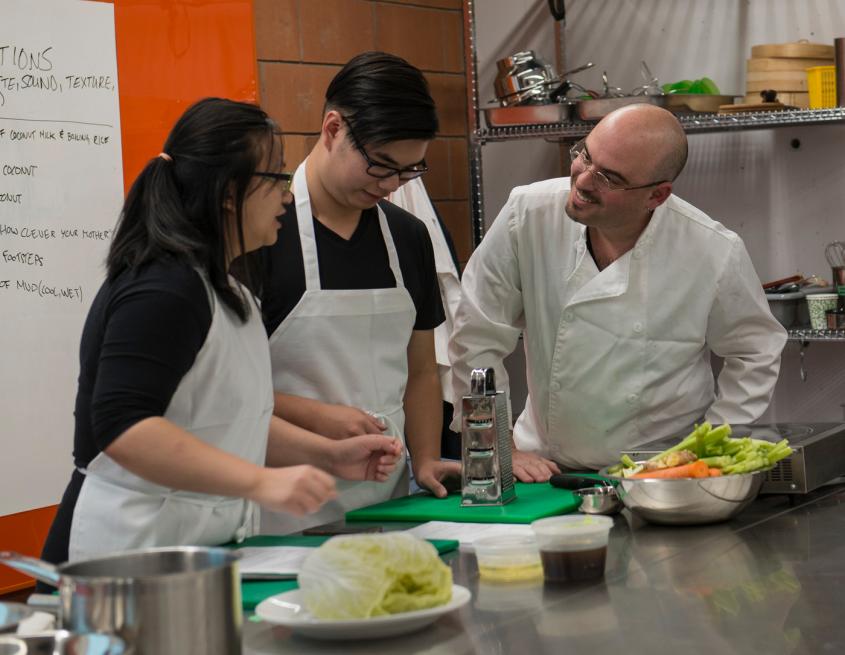
King’s current book project examines the intersection gender, food and transnational Chinese identities through the life and career of post-war Taiwan’s pioneering female cookbook author and television personality, Fu Pei-mei.
“Although I am working on this history of cookbook author Fu Pei-mei, as a working mom with two young kids, I have no time to cook and no time to do all these things that I read about,” she says. “It’s nice that the study of history, culture, society can be integrated with a practical aspect here.”
Bender is glad for every opportunity that the Culinaria can be part of to increase learning pathways for food studies students.
“These types of opportunities give students a sense that the class doesn’t end with the ideas that we present in our food studies classes,” says Bender. “Students can think about the connections that food provides when they’re having their dinner or going out to a restaurant, and I think that’s a very empowering idea.”
The two-part event is a collaboration between Culinaria and the Department of East Asian Studies.
